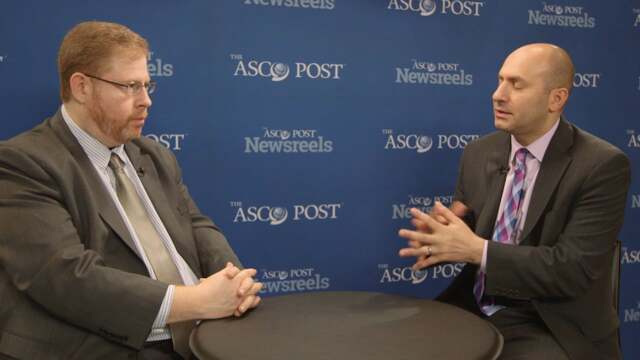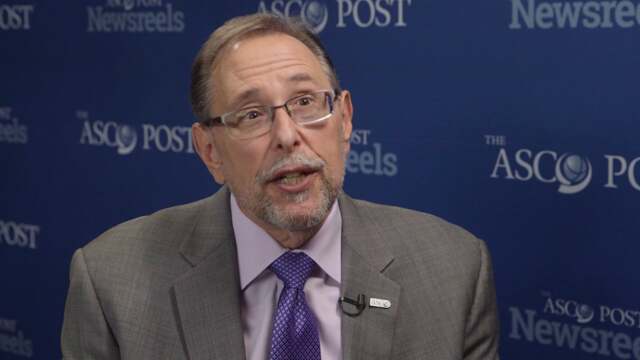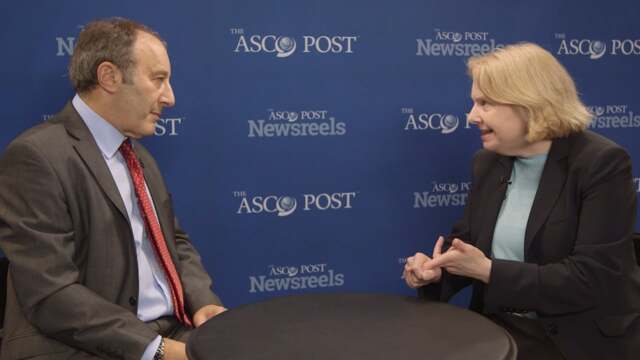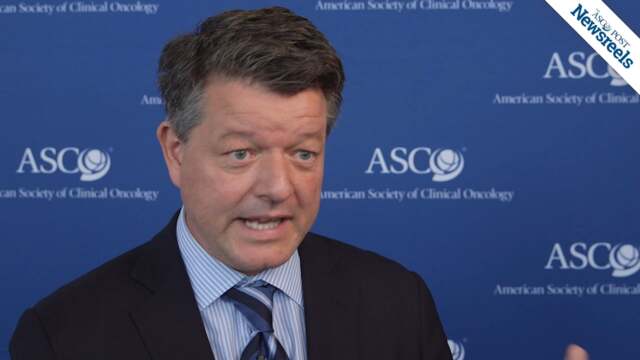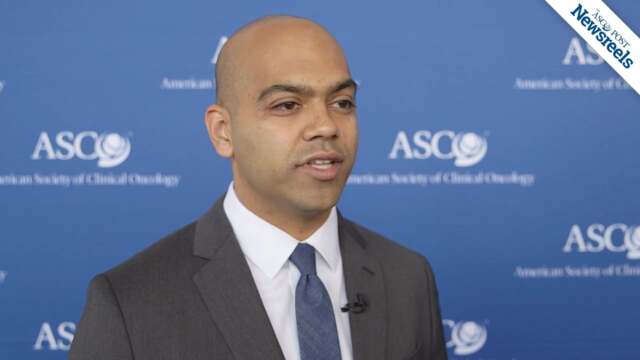Clifford A. Hudis, MD, Allen S. Lichter, MD, and Richard L. Schilsky, MD, on Passing the Torch
2016 ASCO Annual Meeting
Richard L. Schilsky, MD (right), Chief Medical Officer of ASCO, talks with incoming ASCO CEO Clifford A. Hudis, MD (left) and outgoing CEO Allen S. Lichter, MD (center) about the passing of the torch and their perspectives on past accomplishments and future goals of the society.
Jonathan E. Rosenberg, MD, of Memorial Sloan Kettering Cancer Center, and Toni K. Choueiri, MD, of the Dana-Farber Cancer Institute, discuss mutation burden—its role in response to treatment with PD-L1 immunotherapy and its impact on progression-free survival and overall survival, as well as the link between intrinsic expression subtypes and treatment outcome with atezolizumab (Abstract 104).
Richard L. Schilsky, MD, ASCO’s Chief Medical Officer, discusses the key presentations at this year’s conference.
The
Jonathan A. Ledermann, MD, of Cancer Research UK and University College London Cancer Trials Centre, and Ursula A. Matulonis, MD, of the Dana-Farber Cancer Institute, discuss findings on overall survival in patients with platinum-sensitive relapsed serous ovarian cancer receiving olaparib maintenance monotherapy (Abstract 5501).
James R. Perry, MD, of Sunnybrook Health Sciences Centre, discusses findings of a phase III trial of short-course radiotherapy with or without concomitant and adjuvant temozolomide in older patients with this tumor (Abstract LBA2).
Nikhil Wagle, MD, of the Dana-Farber Cancer Institute, discusses the strides made in this national direct-to-patient initiative to accelerate genomics research (Abstract LBA1519).
